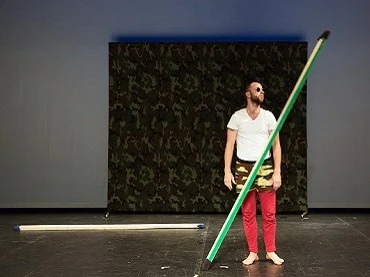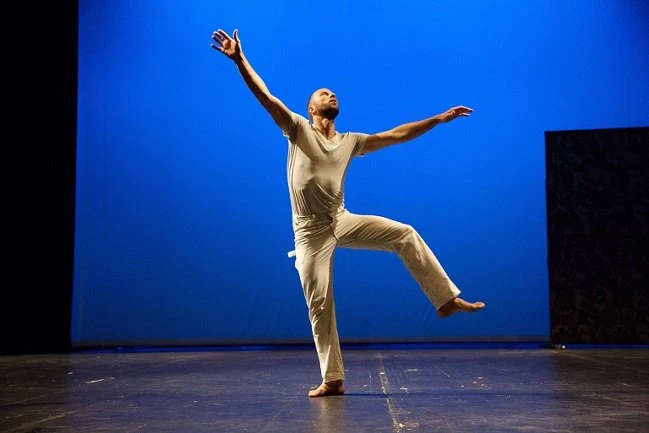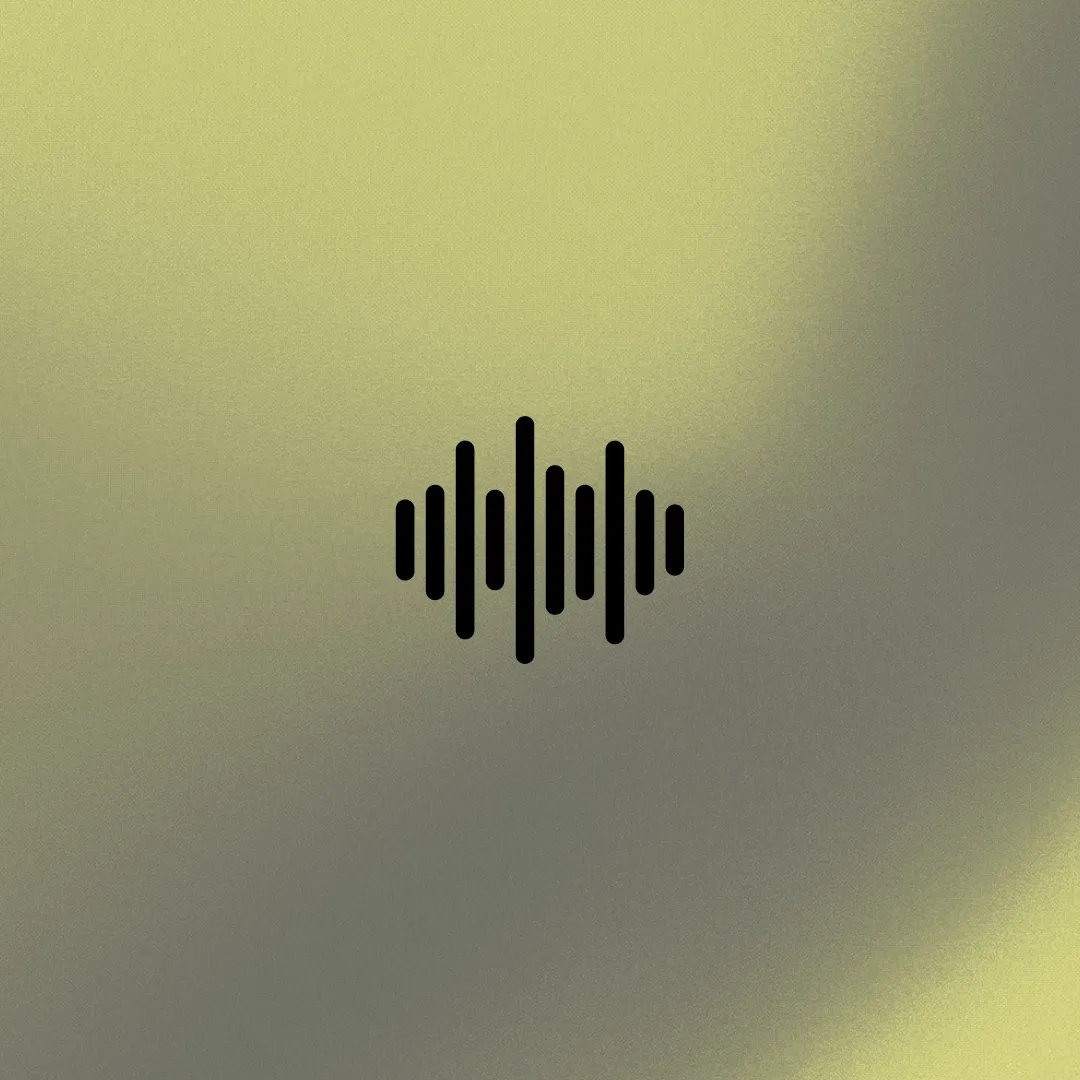-
April 20 - 22, 2015 Nouvel Building, Protocol Room
Workshop with Jurij Konjar
Via email at artesenvivo2@museoreinasofia.es, until full capacity is reached.
Send CV and cover letter.
List of accepted applicantsJurij Konjar, who performs Bound , is conducting a workshop that works on three levels: bodily sensations, mental information and the ethics of dialogue.
In the words of the dancer: I’d like to challenge participants to hold a conversation with an old friend, thinking about the movements of the body from a new perspective. We assume the natural state of the body is movement. I can direct it, transform it, guide it and even deny it; what I can’t do is avoid it. From this perspective, movement is not something you have to fight against; the only thing I have to do is observe (and guide?) what is happening. What I suggest is taking a step back to observe the diverse processes we call “dance” before they take shape. With more similarities than differences, we – people – share a playground; where we carry ourselves with elements such as space, memory, music, necessity, bodily capacity, panic, interpretations of our senses, interpretations of our classmates, etc. The workshop is suitable for all those who perceive the world through change, and for those that aspire to be beginners again.
Jurij Konjar (Ljubljana) is a dancer and choreographer. In 2009, after seeing Steve Paxton’s Goldberg Variations and conversing with its creator, he devised a personal improvisation practice.
In recent years he has worked as a solo artist, collaborating at the same time with Maja Delak, Janez Janša, Boris Charmatz and Martin Kilvady. He is also the performer of Bound. -
April 23, 2015 Nouvel Building, Auditorium 200
Steve Paxton in conversation
Free, until full capacity is reached
In dialogue with João Fernandes, the deputy director of the Museo Reina Sofía, this encounter is set out as a conversation between both, not only running through the milestones of an extensive career, but also reflecting on the new relationship between dance and contemporary art promoted by the Museo.
-
24 - 25 abril, 2015 Edificio Nouvel, Auditorio 400
Bound
Tickets: 3 €, on sale at the Museum's website from April 17 (+ 0.75 € administration fee per ticket) and at the box office
Bound was created in 1982 for the Spazio Zero in Rome, and performed in Great Britain, Belgium and, one year later, at The Kitchen in New York, where the recording this reconstruction is based on was carried out. Bound combines improvised dance episodes with theatrical actions. It is a dance piece made up of vignettes, each one isolated, but, like numbers in a row, it starts to become something greater as they accumulate. Some episodes are dry but resonate poetic thoughts. Some are unchoreographed dance remarks. The music is eclectic, and the images are not immediately logical. Perhaps, as Paxton writes, it is like a chance meeting with a slightly drunken man in a quiet bar. You begin to make conversation, and gradually his disjointed story emerges, lived, as lives are, one moment after another, but now remembered as fragments of a journey, finally to explain how he came to be sitting alone, elbows on a bar and a glass in hand, talking to you.
Steve Paxton

Steve Paxton. Bound. Performed by Jurij Konjar. Photograph by Nada Žgank
Held on 20, 21, 22, 23, 24, 25 Apr 2015
After organising activities with Merce Cunningham and Simone Forti, the Museo Reina Sofía presents the work of choreographer and dancer Steve Paxton (USA, 1939), a central figure in the development of contemporary dance and the creator of contact improvisation. Paxton, a key performer in Merce Cunningham’s dance company during its most productive period in the 1960s, was a founding member of the Judson Dance Theater, together with Trisha Brown, Yvonne Rainer, David Gordon, Deborah Hay and Lucinda Childs, and the group Grand Union in 1973.
Yvonne Rainer joked how she invented running and Paxton invented walking and indeed, the daily act of walking is a core part of many of his early pieces, for instance Proxy (1961), Transit (1962), English (1963) and Satisfyin Lover (1967). At the beginning of the 1970s, Paxton also started to develop a form of dance called contact improvisation, based on the communication between two moving bodies that are in physical contact and their combined relationship to space and the physical laws that govern their movement (inertia, momentum, weight). The body, in order to open to these sensations, learns to release excess muscular tension and experience the natural flow of movement.
On this occasion, a solo devised by Paxton entitled Bound will be reconstructed and performed, for the first time in Spain, by Jurij Konjar. This piece is also accompanied by a workshop held by Konjar and a conversation with Steve Paxton. Bound was created in 1982 for the Spazio Zero, Rome, and performed in Great Britain, Belgium and, one year later, at The Kitchen in New York, where the recording this reconstruction is based on was carried out.
Bound combines improvised dance episodes with theatrical actions. It is a dance piece made up of vignettes, each one isolated, but, like numbers in a row, it starts to become something greater as they accumulate. Some episodes are dry but resonate poetic thoughts. Some are unchoreographed dance remarks. The music is eclectic, and the images are not immediately logical. Perhaps, as Paxton writes, it is like a chance meeting with a slightly drunken man in a quiet bar. You begin to make conversation, and gradually his disjointed story emerges, lived, as lives are, one moment after another, but now remembered as fragments of a journey, finally to explain how he came to be sitting alone, elbows on a bar and a glass in hand, talking to you.
Curatorship
Natalia Álvarez Simó


Más actividades

Aesthetics of Peace and Desertion Tactics
8 October 2025 – 24 June 2026
The study group Aesthetics of Peace and Tactics of Desertion: Prefiguring New Pacifisms and Forms of Transitional Justice proposes a rethinking—through both a theoretical-critical and historical-artistic lens—of the intricate network of concepts and practices operating under the notion of pacifism. A term not without contestation and critical tension, pacifism gathers under its name a multiplicity of practices—from anti-militarism and anti-war movements to non-violence activism—while simultaneously opening urgent debates around violence, justice, reparation, and desertion. Here, pacifism is not conceived as a moral doctrine, but as an active form of ethical and political resistance capable of generating aesthetic languages and new positions of social imagination.
Through collective study, the group seeks to update critical debates surrounding the use of violence and non-violence, as well as to explore the conflict of their representation at the core of visual cultures. In a present marked by rearmament, war, genocide, and the collapse of the social contract, this group aims to equip itself with tools to, on one hand, map genealogies and aesthetics of peace—within and beyond the Spanish context—and, on the other, analyze strategies of pacification that have served to neutralize the critical power of peace struggles. Transitional and anti-punitive justice proposals will also be addressed, alongside their intersections with artistic, visual, and cinematic practices. This includes examining historical examples of tribunals and paralegal activisms initiated by artists, and projects where gestures, imaginaries, and vocabularies tied to justice, reparation, memory, and mourning are developed.
It is also crucial to note that the study programme is grounded in ongoing reflection around tactics and concepts drawn, among others, from contemporary and radical Black thought—such as flight, exodus, abolitionism, desertion, and refusal. In other words, strategies and ideas that articulate ways of withdrawing from the mandates of institutions or violent paradigms that must be abandoned or dismantled. From feminist, internationalist, and decolonial perspectives, these concepts have nourished cultural coalitions and positions whose recovery today is urgent in order to prefigure a new pacifism: generative, transformative, and radical.
Aesthetics of Peace and Tactics of Desertion, developed and led by the Museo Reina Sofía’s Studies Management, unfolds through biweekly sessions from October to June. These sessions alternate between theoretical discussions, screenings, work with artworks and archival materials from the Museo’s Collection, reading workshops, and public sessions. The group is structured around sustained methodologies of study, close reading, and collective discussion of thinkers such as Judith Butler, Elsa Dorlin, Juan Albarrán, Rita Segato, Sven Lütticken, Ruth Wilson Gilmore, and Franco “Bifo” Berardi; historical episodes such as the anti-nuclear and anti-arms race movement in Spain; and the work of artists and activists including Rojava Film Commune, Manuel Correa and the Oficina de Investigación Documental (Office for Documentary Investigation), and Jonas Staal, among other initial cases that will expand as the group progresses.

Institutional Decentralisation
Thursday, 21 May 2026 – 5:30pm
This series is organised by equipoMotor, a group of teenagers, young people and older people who have participated in the Museo Reina Sofía’s previous community education projects, and is structured around four themed blocks that pivot on the monstrous.
This fourth and final session centres on films that take the museum away from its axis and make it gaze from the edges. Pieces that work with that which is normally left out: peripheral territories, unpolished aesthetics, clumsy gestures full of intent. Instead of possessing an institutional lustre, here they are rough, precarious and strange in appearance, legitimate forms of making and showing culture. The idea is to think about what happens when central authority is displaced, when the ugly and the uncomfortable are not hidden, when they are recognised as part of the commons. Film that does not seek to be to one’s liking, but to open space and allow other ways of seeing and inhabiting the museum to enter stage.

Intergenerationality
Thursday, 9 April 2026 – 5:30pm
This series is organised by equipoMotor, a group of teenagers, young people and older people who have participated in the Museo Reina Sofía’s previous community education projects, and is structured around four themed blocks that pivot on the monstrous.
The third session gazes at film as a place from which to dismantle the idea of one sole history and one sole time. From a decolonial and queer perspective, it explores films which break the straight line of past-present-future, which mix memories, slow progress and leave space for rhythms which customarily make no room for official accounts. Here the images open cracks through which bodies, voices and affects appear, disrupting archive and questioning who narrates, and from where and for whom. The proposal is at once simple and ambitious: use film to imagine other modes of remembering, belonging and projecting futures we have not yet been able to live.

Remedios Zafra
Thursday March 19, 2026 - 19:00 h
The José Luis Brea Chair, dedicated to reflecting on the image and the epistemology of visuality in contemporary culture, opens its program with an inaugural lecture by essayist and thinker Remedios Zafra.
“That the contemporary antifeminist upsurge is constructed as an anti-intellectual drive is no coincidence; the two feed into one another. To advance a reactionary discourse that defends inequality, it is necessary to challenge gender studies and gender-equality policies, but also to devalue the very foundations of knowledge in which these have been most intensely developed over recent decades—while also undermining their institutional support: universities, art and research centers, and academic culture.
Feminism has been deeply linked to the affirmation of the most committed humanist thought. Periods of enlightenment and moments of transition toward more just social forms—sustained by education—have been when feminist demands have emerged most strongly. Awareness and achievements in equality increase when education plays a leading social role; thus, devaluing intellectual work also contributes to harming feminism, and vice versa, insofar as the bond between knowledge and feminism is not only conceptual and historical, but also intimate and political.
Today, antifeminism is used globally as the symbolic adhesive of far-right movements, in parallel with the devaluation of forms of knowledge emerging from the university and from science—mistreated by hoaxes and disinformation on social networks and through the spectacularization of life mediated by screens. These are consequences bound up with the primacy of a scopic value that for some time has been denigrating thought and positioning what is most seen as what is most valuable within the normalized mediation of technology. This inertia coexists with techno-libertarian proclamations that reactivate a patriarchy that uses the resentment of many men as a seductive and cohesive force to preserve and inflame privileges in the new world as techno-scenario.
This lecture will address this epochal context, delving into the synchronicity of these upsurges through an additional parallel between forms of patriarchal domination and techno-labor domination. A parallel in which feminism and intellectual work are both being harmed, while also sending signals that in both lie emancipatory responses to today’s reactionary turns and the neutralization of critique. This consonance would also speak to how the perverse patriarchal basis that turns women into sustainers of their own subordination finds its equivalent in the encouraged self-exploitation of cultural workers; in the legitimation of affective capital and symbolic capital as sufficient forms of payment; in the blurring of boundaries between life and work and in domestic isolation; or in the pressure to please and comply as an extended patriarchal form—today linked to the feigned enthusiasm of precarious workers, but also to technological adulation. In response to possible resistance and intellectual action, patriarchy has associated feminists with a future foretold as unhappy for them, equating “thought and consciousness” with unhappiness—where these have in fact been (and continue to be) levers of autonomy and emancipation.”
— Remedios Zafra

27th Contemporary Art Conservation Conference
Wednesday, 4, and Thursday, 5 March 2026
The 27th Contemporary Art Conservation Conference, organised by the Museo Reina Sofía’s Department of Conservation and Restoration, with the sponsorship of the Mapfre Foundation, is held on 4 and 5 March 2026. This international encounter sets out to share and debate experience and research, open new channels of study and reflect on conservation and the professional practice of restorers.
This edition will be held with in-person and online attendance formats, occurring simultaneously, via twenty-minute interventions followed by a five-minute Q&A.

